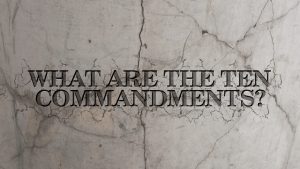
Thank you for joining us for our five days per week wisdom and legacy building podcast. Today is Day 846 of our trek, and it is Wisdom Wednesday. The past several months on Wednesday, we have been focusing on interpreting current events through a Biblical worldview.
To establish a Biblical worldview, it is important that you also have a proper understanding of God’s word. Especially in our western cultures, we do not fully understand the scriptures from the mindset and culture of the authors. In order to help us all have a better understanding of God’s word, we are investing the next several months on Wednesday reviewing a series of essays from one of today’s most prominent Hebrew scholars Dr. Micheal S. Heiser which he has compiled into a book titled I Dare You Not to Bore Me with the Bible.
We are broadcasting from our studio at The Big House in Marietta, Ohio. Our personal moral code and that of every country are based on a set of values. In most western cultures, this code is or was based on what we consider “The Ten Commandments.” Most of the world’s modern cultures have a similar value system, even if it does not have the same base. In today’s essay, let’s look at some of the details and even the number of actual commandments which were given by God…

One of the most enduring elements of the Bible and the Judeo-Christian worldview within Western culture is the Decalogue, or what we refer to as the Ten Commandments. Even if you can’t recite them all, most people have seen the fiery finger of God etch the commandments into two stone tablets as Moses, played by Charlton Hesston, watches in awe.
It seems to go without saying that the list of the Ten Commandments is something that Judaism and Christianity have always agreed upon. Well, that is not exactly true. Historically speaking, Jews and Christians—and even denominations within Christianity—have disagreed on exactly how the Ten Commandments should be listed and expressed. In fact, how to precisely spell out the commandments was an issue of considerable importance during the Protestant Reformation.
The difference concerns how many commands are to be found in the...